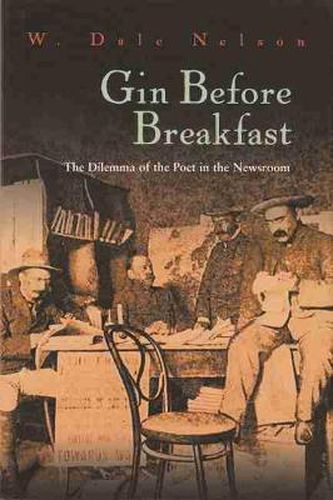Readings Newsletter
Become a Readings Member to make your shopping experience even easier.
Sign in or sign up for free!
You’re not far away from qualifying for FREE standard shipping within Australia
You’ve qualified for FREE standard shipping within Australia
The cart is loading…






This enlightening volume presents minibiographies of key British and American poets who at one time or another worked as journalists. Poets covered range from the famous to the obscure: Whittier to Whitman, Kipling to Bryant, Coleridge to Crane. Writing in a direct, unadorned style, W. Dale Nelson tells each writer’s story, often relating how the poet in question felt about the journalistic experience and its impact upon creative work. Archibald MacLeish wrote
young poets are advised by their elders to avoid the practice of journalism as they would wet socks and gin before breakfast.
On the other hand, Leonard Woolf suggests that Hemingway’s strong spare prose often
bears the mark of good journalism.
The author raises compelling issues about developments in poetic form, effects of printing and communication on poetry, and the relationship of poetry and locales. He also looks at how poetic diction has been influenced by the language of reportage and the basic difference in the purpose of journalism versus that of poetry.
$9.00 standard shipping within Australia
FREE standard shipping within Australia for orders over $100.00
Express & International shipping calculated at checkout
This enlightening volume presents minibiographies of key British and American poets who at one time or another worked as journalists. Poets covered range from the famous to the obscure: Whittier to Whitman, Kipling to Bryant, Coleridge to Crane. Writing in a direct, unadorned style, W. Dale Nelson tells each writer’s story, often relating how the poet in question felt about the journalistic experience and its impact upon creative work. Archibald MacLeish wrote
young poets are advised by their elders to avoid the practice of journalism as they would wet socks and gin before breakfast.
On the other hand, Leonard Woolf suggests that Hemingway’s strong spare prose often
bears the mark of good journalism.
The author raises compelling issues about developments in poetic form, effects of printing and communication on poetry, and the relationship of poetry and locales. He also looks at how poetic diction has been influenced by the language of reportage and the basic difference in the purpose of journalism versus that of poetry.